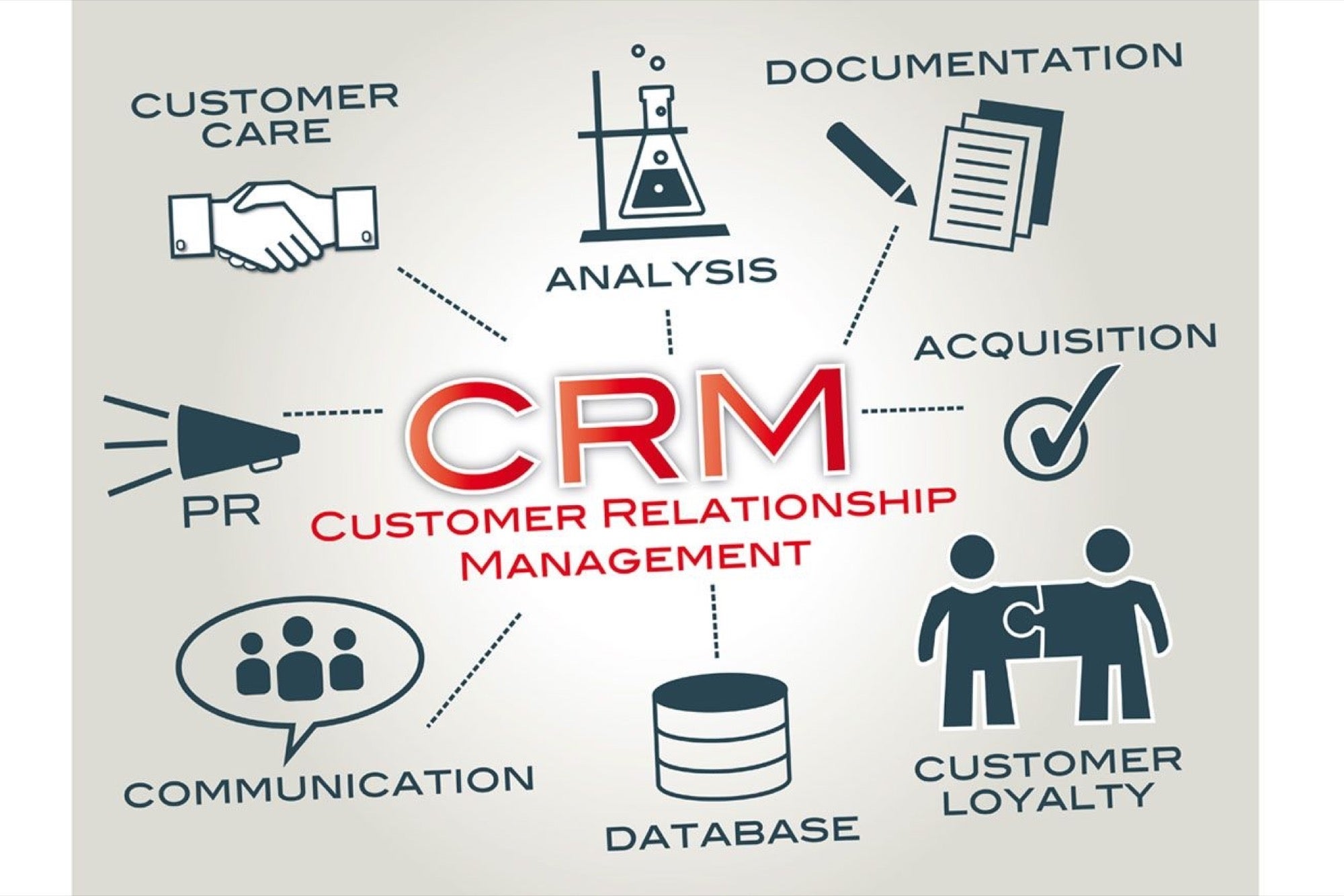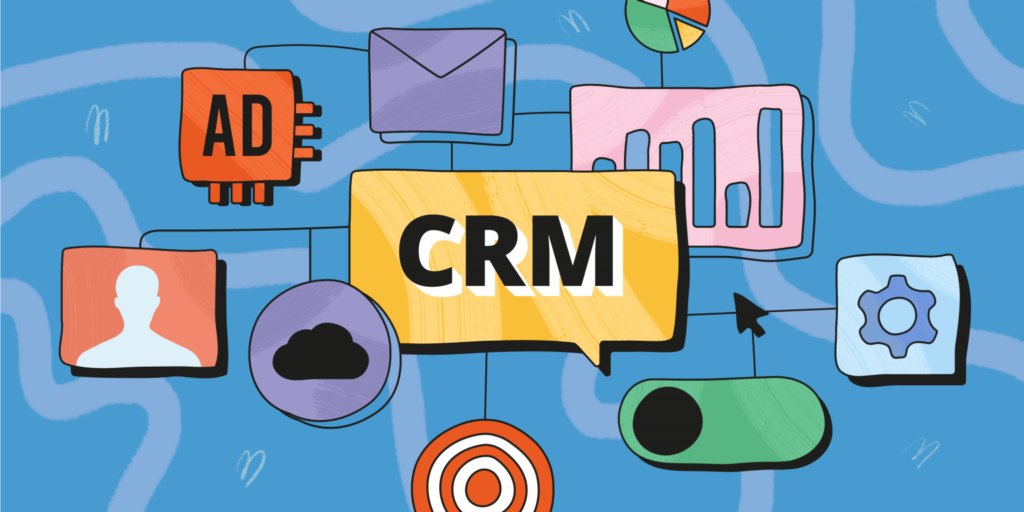Supercharge Your Marketing Team: A Deep Dive into CRM Systems
Unlocking Marketing Potential: Why CRM is a Game Changer
In the fast-paced world of marketing, staying ahead of the curve is no longer a luxury; it’s a necessity. Your team is juggling campaigns, analyzing data, and striving to connect with customers on a deeper level. But are they equipped with the right tools to truly excel? This is where a Customer Relationship Management (CRM) system steps in, transforming the way your marketing team operates and boosting your overall performance.
A CRM isn’t just about storing contact information; it’s a dynamic platform that empowers your team to understand and engage with customers more effectively. It’s about building relationships, personalizing experiences, and driving revenue. In this comprehensive guide, we’ll delve into the world of CRM for marketing teams, exploring its benefits, features, and how to choose the perfect system for your specific needs. Get ready to revolutionize your marketing strategy!
What Exactly is a CRM for Marketing Teams?
At its core, a CRM for marketing teams is a centralized hub for all customer-related data and interactions. It’s a sophisticated system designed to streamline marketing efforts, improve customer engagement, and ultimately, boost sales. Think of it as the central nervous system of your marketing operations, connecting all the moving parts and providing valuable insights.
Unlike a simple contact list or spreadsheet, a CRM offers a wealth of features tailored to the specific needs of a marketing team. These features typically include:
- Contact Management: Store and organize detailed customer profiles, including contact information, purchase history, communication preferences, and more.
- Lead Management: Track leads through the sales funnel, nurture them with targeted campaigns, and qualify them for sales.
- Marketing Automation: Automate repetitive tasks, such as email marketing, social media posting, and lead nurturing.
- Campaign Management: Plan, execute, and track the performance of your marketing campaigns.
- Reporting and Analytics: Gain valuable insights into your marketing performance with customizable reports and dashboards.
- Segmentation: Divide your customer base into segments based on demographics, behavior, or other criteria to personalize your marketing efforts.
- Integration: Connect your CRM with other marketing tools, such as email marketing platforms, social media management tools, and website analytics.
The Core Benefits of Implementing a CRM for Marketing
The advantages of using a CRM system for your marketing team are numerous and far-reaching. Let’s explore some of the most significant benefits:
Enhanced Customer Understanding
A CRM provides a 360-degree view of your customers, allowing you to understand their needs, preferences, and behaviors. By analyzing customer data, you can gain valuable insights into their buying journey and tailor your marketing efforts accordingly. This deeper understanding leads to more effective targeting, personalized messaging, and ultimately, increased customer satisfaction.
Improved Marketing Efficiency
CRM systems automate many of the tedious, time-consuming tasks that often bog down marketing teams. This automation frees up your team to focus on more strategic initiatives, such as developing creative campaigns, analyzing data, and building relationships. By streamlining your marketing processes, you can significantly improve efficiency and productivity.
Increased Lead Generation and Conversion Rates
CRM systems are designed to help you generate more leads and convert them into paying customers. By tracking leads through the sales funnel, you can identify bottlenecks and optimize your lead nurturing strategies. CRM’s lead scoring features help you prioritize your efforts, focusing on the leads that are most likely to convert. This targeted approach leads to higher conversion rates and a better return on investment (ROI) for your marketing efforts.
Personalized Customer Experiences
In today’s competitive landscape, personalization is key to building strong customer relationships. A CRM allows you to personalize your marketing messages and offers based on customer data, such as their purchase history, demographics, and preferences. This personalized approach makes your customers feel valued and understood, leading to increased engagement and loyalty.
Better Collaboration and Communication
A CRM serves as a central hub for all customer-related information, making it easier for marketing, sales, and customer service teams to collaborate and communicate effectively. By sharing customer data and insights, teams can work together to provide a seamless customer experience. This collaboration fosters better alignment and reduces the risk of miscommunication.
Data-Driven Decision Making
CRM systems provide a wealth of data and analytics that can be used to inform your marketing decisions. By tracking key metrics, such as website traffic, lead generation, and conversion rates, you can gain valuable insights into your marketing performance. This data-driven approach allows you to identify what’s working and what’s not, enabling you to make data-backed decisions and optimize your marketing strategies.
Key Features to Look for in a CRM for Marketing
Choosing the right CRM for your marketing team can be a daunting task. With so many options available, it’s important to understand the key features that will make a real difference in your team’s performance. Here’s a rundown of the most important features to consider:
Contact Management
This is the foundation of any CRM. Look for a system that allows you to store and organize detailed customer profiles, including contact information, communication history, and purchase data. The ability to segment your contact list based on various criteria is also crucial for targeted marketing.
Lead Management and Lead Scoring
Effective lead management is essential for converting leads into customers. Your CRM should include features for tracking leads through the sales funnel, nurturing them with targeted campaigns, and qualifying them for sales. Lead scoring allows you to prioritize your efforts by identifying the leads that are most likely to convert.
Marketing Automation
Marketing automation can save your team significant time and effort by automating repetitive tasks. Look for a CRM that offers features such as email marketing automation, social media posting, and lead nurturing workflows. These features will free up your team to focus on more strategic initiatives.
Campaign Management
Your CRM should allow you to plan, execute, and track the performance of your marketing campaigns. Look for features that allow you to segment your audience, create targeted messages, and track key metrics, such as click-through rates, conversion rates, and ROI.
Reporting and Analytics
Data is your friend. A good CRM will provide customizable reports and dashboards that give you valuable insights into your marketing performance. Look for features that allow you to track key metrics, such as website traffic, lead generation, and conversion rates. The ability to visualize your data and share reports with your team is also important.
Integration Capabilities
Your CRM should integrate with other marketing tools, such as email marketing platforms, social media management tools, and website analytics. Integration allows you to streamline your workflow and share data seamlessly between different systems.
Mobile Access
In today’s mobile world, it’s essential to have access to your CRM on the go. Look for a system that offers a mobile app or a mobile-friendly interface, allowing your team to access customer data and manage their tasks from anywhere.
User-Friendly Interface
A user-friendly interface is crucial for adoption and ease of use. Choose a CRM with an intuitive design and clear navigation. Your team should be able to learn and use the system quickly and easily.
Choosing the Right CRM for Your Marketing Team: A Step-by-Step Guide
Selecting the right CRM is a crucial decision that can significantly impact your marketing team’s success. Here’s a step-by-step guide to help you choose the perfect CRM for your needs:
1. Define Your Needs and Goals
Before you start evaluating different CRM systems, take some time to define your specific needs and goals. What are you hoping to achieve with a CRM? What are your biggest pain points? What features are essential for your team? Consider these questions:
- What are your marketing goals (e.g., increase lead generation, improve conversion rates, enhance customer engagement)?
- What are the specific tasks that your team needs to perform (e.g., email marketing, social media management, lead nurturing)?
- What are your current challenges (e.g., lack of data, poor communication, inefficient processes)?
- What are the key features that you need in a CRM (e.g., contact management, lead scoring, marketing automation)?
- What integrations do you need with other tools (e.g., email marketing platforms, social media management tools)?
2. Research and Evaluate CRM Options
Once you have a clear understanding of your needs, it’s time to research and evaluate different CRM options. There are many CRM systems available, each with its own strengths and weaknesses. Consider these factors when evaluating different options:
- Features: Does the CRM offer the features that you need?
- Ease of Use: Is the system user-friendly and easy to learn?
- Scalability: Can the CRM scale as your business grows?
- Integration: Does the CRM integrate with your existing tools?
- Pricing: Is the pricing model affordable for your budget?
- Customer Support: Does the vendor offer good customer support?
- Reviews: What are other users saying about the CRM?
Some popular CRM options for marketing teams include:
- HubSpot CRM: Known for its user-friendliness, free version, and extensive marketing automation features.
- Zoho CRM: A comprehensive CRM with a wide range of features and a competitive pricing model.
- Salesforce Sales Cloud: A powerful and highly customizable CRM, ideal for larger organizations.
- Pipedrive: A sales-focused CRM that’s easy to use and great for managing leads and deals.
- Microsoft Dynamics 365: A comprehensive CRM with a focus on sales, marketing, and customer service, integrated with other Microsoft products.
3. Consider Your Budget
CRM systems come in a variety of pricing models, from free to enterprise-level. Determine your budget before you start evaluating different options. Consider not only the upfront cost of the software but also the ongoing costs of implementation, training, and maintenance.
4. Evaluate the User Experience
The user experience is critical for adoption. Choose a CRM that has an intuitive design and is easy to navigate. Consider the following:
- Is the interface clean and uncluttered?
- Is the system easy to learn and use?
- Does the CRM offer mobile access?
- Does the CRM offer good customer support?
5. Test Drive the CRM
Many CRM vendors offer free trials or demos. Take advantage of these opportunities to test drive the CRM and see if it’s a good fit for your team. Ask your team members to try out the system and provide feedback.
6. Plan for Implementation and Training
Once you’ve chosen a CRM, it’s important to plan for implementation and training. This includes:
- Migrating your existing data to the new system.
- Customizing the CRM to meet your specific needs.
- Training your team on how to use the system.
- Providing ongoing support and maintenance.
Best Practices for CRM Success
Implementing a CRM is just the first step. To maximize your return on investment, follow these best practices:
Data Hygiene is Key
Keep your data clean, accurate, and up-to-date. Regularly review and update your customer data to ensure that it’s accurate and complete. This is essential for effective targeting and personalization.
Focus on User Adoption
Ensure that your team is fully trained on how to use the CRM and that they understand its benefits. Encourage adoption by providing ongoing support and recognizing team members who are using the system effectively.
Align Sales and Marketing
Encourage collaboration and communication between your sales and marketing teams. Share customer data and insights to provide a seamless customer experience.
Regularly Review and Optimize
Regularly review your CRM data and analytics to identify areas for improvement. Continuously optimize your marketing strategies and processes based on your findings.
Integrate with Other Tools
Integrate your CRM with other marketing tools to streamline your workflow and share data seamlessly between different systems. This will save you time and effort and improve your overall efficiency.
Set Clear Goals and KPIs
Establish clear goals and key performance indicators (KPIs) to measure the success of your CRM implementation. Track your progress and make adjustments as needed.
The Future of CRM in Marketing
The world of CRM is constantly evolving, with new technologies and features emerging all the time. Here are some trends to watch for:
Artificial Intelligence (AI) and Machine Learning (ML)
AI and ML are already playing a significant role in CRM, and their influence will only continue to grow. These technologies can be used to automate tasks, personalize customer experiences, and provide valuable insights. Expect to see even more AI-powered features in CRM systems in the future.
Increased Personalization
Customers expect personalized experiences, and CRM systems are evolving to meet this need. Expect to see more CRM systems that offer features for advanced segmentation, personalized messaging, and dynamic content.
Enhanced Mobile Capabilities
Mobile access is essential in today’s world. CRM vendors are focusing on enhancing their mobile capabilities to allow users to access customer data and manage their tasks from anywhere.
Focus on Customer Experience
CRM systems are increasingly focused on providing a seamless and positive customer experience. Expect to see more features that are designed to improve customer engagement and loyalty.
Integration with Emerging Technologies
CRM systems are integrating with emerging technologies, such as virtual reality (VR) and augmented reality (AR), to provide more immersive customer experiences.
Conclusion: Embracing the Power of CRM for Marketing Teams
In conclusion, implementing a CRM system is a strategic move that can transform your marketing team and drive significant results. By understanding your needs, choosing the right CRM, and following best practices, you can unlock the full potential of your marketing efforts. From enhanced customer understanding to improved marketing efficiency and personalized customer experiences, the benefits of a CRM are undeniable. Embrace the power of CRM and watch your marketing team thrive!





